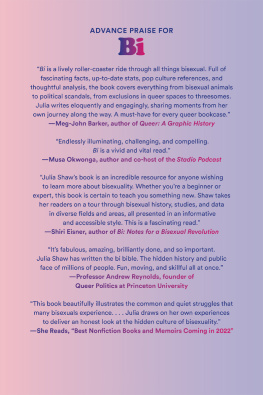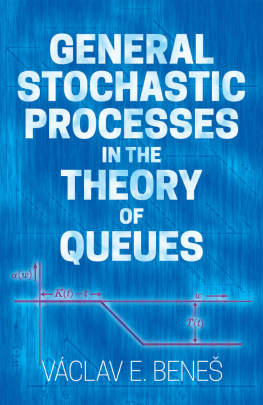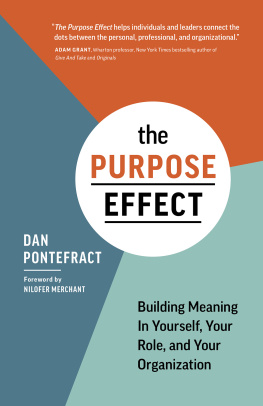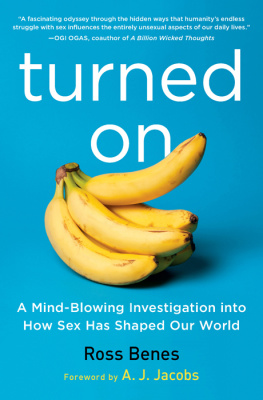Copyright 2017 by Ross Benes
Cover and internal design 2017 by Sourcebooks, Inc.
Cover design by Will Riley/Sourcebooks, Inc.
Cover image TPopova/Thinkstock
Sourcebooks and the colophon are registered trademarks of Sourcebooks, Inc.
All rights reserved. No part of this book may be reproduced in any form or by any electronic or mechanical means including information storage and retrieval systemsexcept in the case of brief quotations embodied in critical articles or reviewswithout permission in writing from its publisher, Sourcebooks, Inc.
This publication is designed to provide accurate and authoritative information in regard to the subject matter covered. It is sold with the understanding that the publisher is not engaged in rendering legal, accounting, or other professional service. If legal advice or other expert assistance is required, the services of a competent professional person should be sought. From a Declaration of Principles Jointly Adopted by a Committee of the American Bar Association and a Committee of Publishers and Associations
This book is not intended as a substitute for medical advice from a qualified physician. The intent of this book is to provide accurate general information in regard to the subject matter covered. If medical advice or other expert help is needed, the services of an appropriate medical professional should be sought.
All brand names and product names used in this book are trademarks, registered trademarks, or trade names of their respective holders. Sourcebooks, Inc., is not associated with any product or vendor in this book.
Published by Sourcebooks, Inc.
P.O. Box 4410, Naperville, Illinois 60567-4410
(630) 961-3900
Fax: (630) 961-2168
www.sourcebooks.com
Library of Congress Cataloging-in-Publication data is on file with the publisher.
For Eddie, the best damn friend a boy could ever have.
CONTENTS
People began desiring a single spouse because of war, not love. While monogamy may be unnatural, its proved socially beneficial.
Rather than freak out, people should expect sex affairs from politicians, because sexual risk-taking reflects leadership traits that constituents desire.
Condoms have reduced HIV transmission in concentrated epidemics among drug users, sex workers, and gay men. But they havent worked in African countries where entire populations are at risk. Here, condoms facilitate risky behavior, and Western organizations capitalize on hyperepidemics.
The U.S. military has always had trouble dealing with sexparticularly gay sex. Through its sexual struggles and homophobic tendencies, the military inadvertently helped create a gay identity in America.
Because gay neighborhoods spur urban development, itd be wise for financially troubled cities like Detroit to boost their LGBT tolerance and visibility.
Because of porns taboo nature and potential political capital, its true correlation with crime and economic influence pass by undetected.
Tampering with fertility rates can provide macroeconomic gains. However, too much governmental fertility intervention produces a wide range of unintended consequences.
Sexuality inspires accidental inventions. Corn Flakes and graham crackers were created with sex in mind. Vibrators and Viagra were not.
Priests respond to spiritual and sexual incentives just like everybody else. Thats why so many of them are gay.
The wombs of Middle Eastern Muslim women demonstrate the necessity of religious pluralism.
FOREWORD
The human sex drive is powerful and complicated, and it leads to all sorts of unintended consequences.
For instance, in the late twentieth century, Ron Benes and Sue Benes mated, which resulted in a baby named Ross Benes, who would grow up to be a talented journalist, and, much to their surprise, write a book about sex.
Sorry to bring your parents bedroom life into this, Ross.
But Im not sorry your parents procreated.
Ross produced a book that is fascinating and original. Its also wide-rangingRoss talks about the impact sex has had on everything from hipster neighborhoods to politics, from modern warfare to breakfast. (In case you didnt know, cornflakes were invented in the nineteenth century as a way to reduce teenage boys masturbation habits. They were spectacularly ineffective in that department, but they are still delicious.)
The book is also provocativeas any book on sex should be. You may not agree with all of Rosss conclusions (I took issue with a couple myself!), but you will absolutely enjoy the journey. If I were to pitch the book in an elevator, Id say its Freakonomics without pants. Then Id probably be escorted off the elevator by security.
One word of advice when reading this book: Dont skip the footnotes. Some of the most interesting information and insights can be found in Rosss small type. Noel Coward once said that having to read footnotes resembles having to go downstairs to answer the door while in the midst of making love. An appropriately carnal metaphor. But in this case, the trip downstairs is worth it. Your partner will be waiting for you when you return.
I first met Ross when he was working at Esquire magazine, where I was an editor. He was a fountain of ideas. He talked fast and read voraciously. And hes written some wonderful pieces both for Esquire and for other publications.
He wrote about his experience at a silent retreatwhich was a brave endeavor, since he is the most talkative person I know. He wrote about Scientology, which is also a brave endeavor, because the Scientologists harass journalists for even typing the word Scientology. He has also written about wrestling and his love for orange Hi-C.
But this book about sex is his most interesting work yet.
I hope you enjoy it as much as I did, if not as much as the act itself.
A. J. Jacobs, New York Times bestselling author of Drop Dead Healthy, The Year of Living Biblically, and The Know-It-All
INTRODUCTION
For all the time we spend thinking about it, talking about it, and engaging in it, sex still arouses contention and confusion for many people. From exhibitionists who advocate free love to celibate religious leaders who condemn promiscuity, and everyone in between, sex evokes a powerful reaction across cultures and societies. The emotional response that often follows one of our most primal behaviors has severely distorted the publics understanding of the most basic statistics, trends, and behaviors related to sexualityeverything from what percentage of the population is gay to how often people divorce.
As youll see in the following pages, many of the ideas our society holds to be self-evident about monogamy, affairs, divorce, rape, porn, abstinence, STDs, contraception, fertility rates, and reproductive technologies are often far from the empirical truth. Many of these misconceptions about human sexuality occur because sex inevitably incites emotion. And emotion lends itself to politicizing, where statistics are interpreted according to the ethics of whatever group a person identifies with. Other misconceptions likely arise from simple ignorance and fear. And many people also hold misconceptions stemming from the fact that good data gets lost in the vast and, incidentally, misleading informational overload our culture spews. From celebrities selling gossip to pastors warning of the homosexual agenda to sex tips in glossy magazines, there is an unending amount of conflicting information that makes it difficult to spot accurate and reliable facts.














